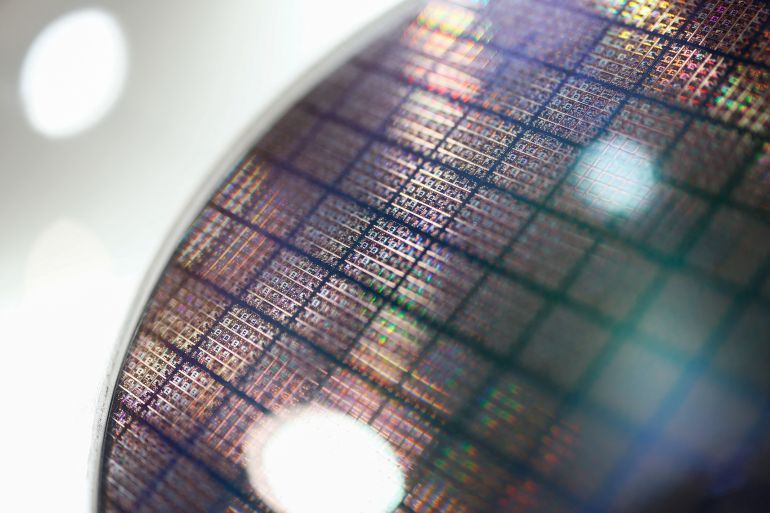Donald Trump, president of the United States, promises to impose a 100 percent tariff on semiconductors made in the US, but will grant exemptions to US-based businesses that have made investments.
Trump said to reporters at the Oval Office on Wednesday evening, “We’ll be putting a tariff on chips and semiconductors of about 100%, but there’s no charge if you’re building in the United States of America, even though you’re building and you’re not producing yet.”
Apple announced a separate $600 billion investment in the US after a separate announcement, but US observers did not expect it to happen.
Trump, who did not provide further information, told CNBC on Tuesday that he intended to “unlock a new tariff on semiconductors within the next week or so.”
At the Oval Office, there were no more details about how and when the tariffs would go into effect, but Asia’s semiconductor powerhouses were quick to respond to the potential impact.
The largest chipmaker in the world, TSMC, was headquartered in Taiwan and is exempt from the tariff because of its US investments.
Taiwan’s legislature heard from National Development Council Chairman Liu Chin-ching, who stated, “Taiwan’s main exporter is TSMC, which has factories in the United States. TSMC is exempt.”
To expand chip manufacturing and research facilities in Arizona, TSMC announced in March that it would increase its US investment to $ 65 billion.
South Korea was quick to deny any worries about SK Hynix, one of its top chip manufacturers, having invested in facilities in Texas and Indiana.
Seoul already faced “favourable” tariffs after signing a trade agreement with Washington earlier this year, according to trade envoy Yeo Han-koo, who claimed South Korean businesses would not be subject to the tariff.
The bipartisan CHIPS Act, which provided billions of dollars in subsidies and tax credits for re-shore investment and manufacturing, has attracted the attention of TSMC, Samsung, and SK Hynix, just a few examples of foreign tech companies that have invested in the US since 2022, when then-President Joe Biden signed it.
The Philippines is less fortunate, according to Semiconductor and Electronics Industries Foundation president Dan Lachica.
Because semiconductors account for 70% of the Philippines’ exports, he claimed the tariffs will be “devastating.”
Source: Aljazeera

Leave a Reply